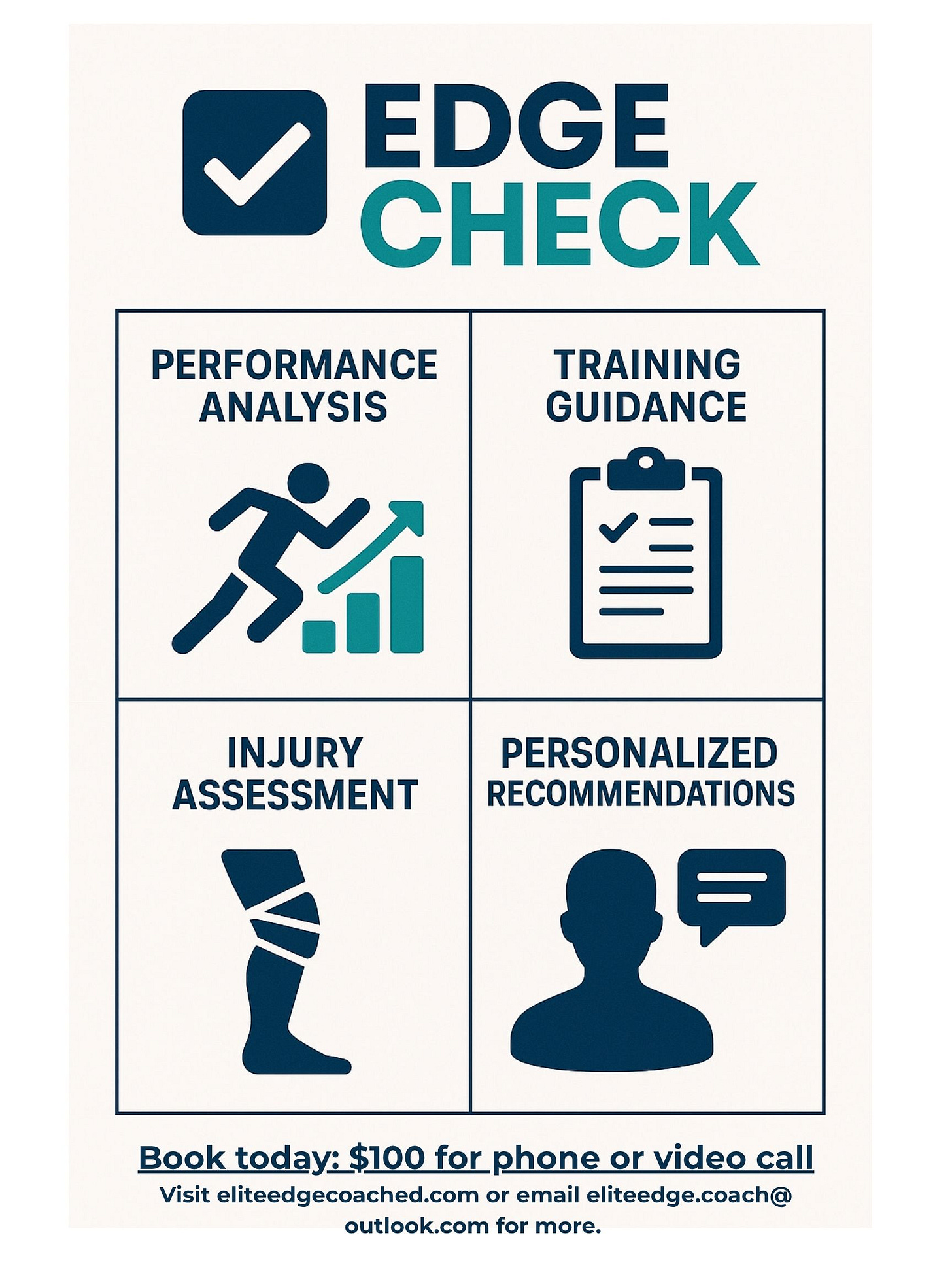Fire up your favorite search engine and look up a training program for the event you are looking to do. What did you find? Dozens of options. Spreadsheets, apps, AI-generated plans, even celebrity-endorsed programs. Access to a plan is easier than ever.
But with a plan such as the above you are left with no oversight. No coaching is happening. A coach who simply writes workouts is not a coach and truthfully, the actual training a coach prescribes can vary widely and have some nonspecific effects. If there was an ideal way, people would have figured it out eons ago.
Good coaching is rooted in principles. Those principles are matched to the athlete in front of the coach. Then the job of the coach is to make sure the athlete is not running off course (literally or figuratively).
This week, we touch on the value of having a coach. As mentioned in my recent e-Book A Lap Ahead, athletic success rests on far more than paces, heart rates, and PRs.
A Lap Ahead e-Book
Have you ever wondered how two athletes can follow a similar program and get wildly different results?
An objective view
A highly motivated athlete, when left to their own devices, can get lost in their own head. A coach can come in handy in this situation.
Our sense of time is warped when we make up our own expectations of where we want to be.
Sometimes the best thing to hear is a coach telling you “It has only been 6 weeks. Look at what you have done in that short amount of time.”
Furthermore, a coach can help determine whether you have been going on too long with a perceived plateau in progress. Maybe you need to persist. Maybe you need to adjust the sails. Maybe you need to abandon the whole plan entirely and start anew.

Is this normal?
There will be times during a training program where you, the athlete, experience uncertainty:
Should I be this tired?
Should this hurt like it does?
Should I be crushing every workout?
Why was today so much harder than last week?
Is it okay to feel unmotivated right now?
Am I behind? Ahead? Lost?
These are common, even expected, questions. In the absence of a guide, it’s easy to misinterpret those signs.
Fatigue, soreness, or a few off days do not always indicate something is wrong. Without perspective, though, you have a lot of noise and not a lot of signal.
A coach helps you filter this noise. They help you understand what’s normal for your current phase of training and what may be signaling a need for adjustment. If you and your coach communicate frequently, as I try to do with my athletes, there is often a good understanding of the context for each workout, block, and season.
Ideally a coach is not going to just answer your question. They will guide you so that you can start to make sense of your own uncertainties in the future. Over time, that leads to confidence because you know what to expect and how to adjust if needed.
There is no function in an Excel spreadsheet that can provide that level of value.

Honesty
A good coach is an honest coach. As an athlete, this may include hearing things you do not want to hear. If the coach-athlete relationship is strong, this “brutal honesty” is both understood and genuine. There are also times where the honesty is helpful to get the athlete to see their potential.
Your coach can point out when:
Your lifestyle does not align with your goals
Your abilities are more than you, the athlete, believe
Your plan needs an adjustment
Effective training goes beyond the numbers.
A coach does more than deliver paces and prescribe volume. The best coaching relationship builds not just a fitter athlete, but a smarter, more resilient one. Training plans are easy to find but long-term partnerships are not, and that’s the real value of a coach.



